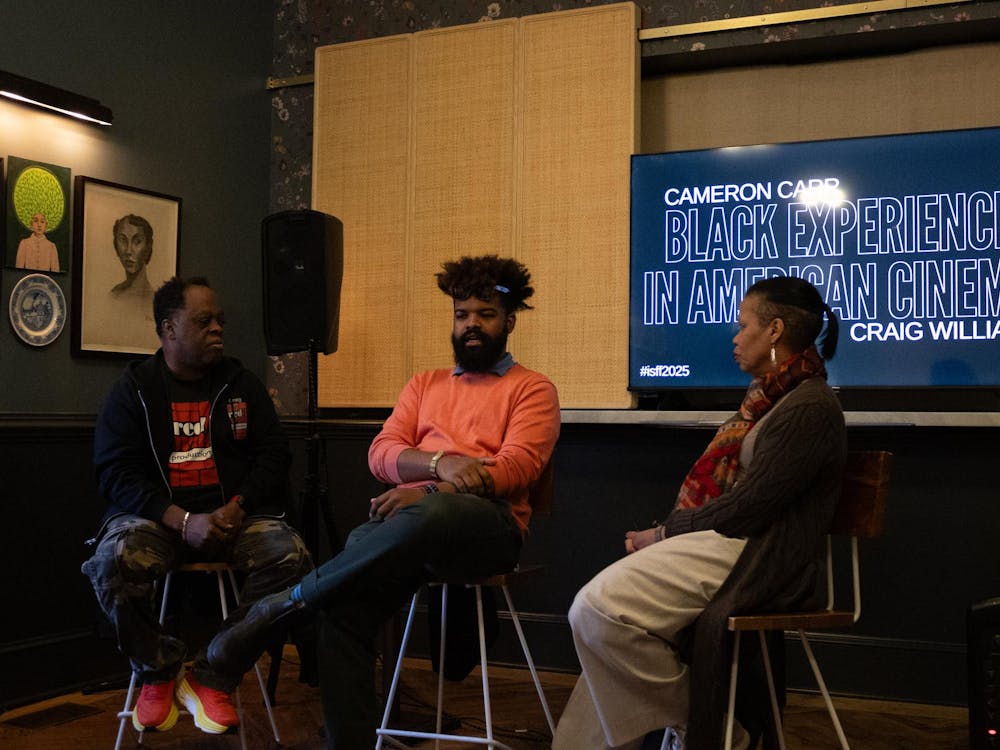Throughout his seasoned, fulfilling yet entirely too short life, David Berman touched countless lives across the world. A songwriter, musician, cartoonist, author, poet and U.Va. graduate, Berman tragically passed away on Aug. 7, 2019, just weeks after releasing an exceptional self-titled album with the group Purple Mountains.
Now, a year after his passing, Berman’s music remains a testament to the creative beauty that can emerge through times of trouble — a lesson that seems particularly poignant in the world’s current state. While his music-making career spanned for nearly 30 years, predominantly under the artist name Silver Jews, it first took off in Charlottesville in 1987.
Along with fellow student and WTJU radio host Gate Pratt, Berman started his first band, Ectoslavia, in the basement of a red house on 14th Street. A collaborative and inclusive effort with a scattered sound, Ectoslavia and the creative minds of the “Red House” came and went, notably featuring Bob Nastanovich and Stephen Malkmus of the later indie-rock phenomenon Pavement. A collaborative friendship would continue between Berman, Malkmus and Nastanovich, as the three also co-founded the band Silver Jews in New York in 1989.
Berman was also an influential presence at WTJU during a time that helped shape the station’s direction. As an Echols scholar and gifted poet during his undergraduate years, it was during his time at the University where Berman began writing songs and developing his lyrical wittiness and fervor. He is remembered by friends and peers for his talent and wit, but also for his humor and kindness.
Like his college friends with Pavement, the Silver Jews’ music was gritty and flawed in a uniquely enjoyable way. It would become heavily influential on future indie rock efforts — in fact, it is almost impossible to talk about the foundations of indie rock without mentioning Silver Jews or Pavement. As the frontman of the Silver Jews, Berman sang about life, loss, higher powers, love and death with an entirely original perspective. He was unhinged with his words, particularly in describing his own struggles with addiction, depression and a broken heart. Ultimately, one of Berman’s greatest qualities was also his worst — he was deeply aware of the harshness of life and unafraid to write and sing about it anyway.
“He could really see things in a way nobody else could. Even simple things,” said his friend and classmate Sandra Wade in an article released by C-Ville weekly last year. “It’s what made him a good writer, and it’s what made him a good friend.”
Perhaps the most rigorously beautiful work of David Berman lies in his last release before his death — the self-titled debut of “Purple Mountains.” Released July 12, 2019 through the Chicago-based Drag City records, the album is overwhelmingly sad, while being packaged in a beautifully melodic manner. Additionally, it was an exciting release, being his first musical offering since the closure of the Silver Jews ten years prior. Fundamentally, it functions no differently from a Silver Jews album, with Berman’s lyrics commenting on the typicalities and mundaneness of life through a clever, humorous yet dark lens. Many of the songs on “Purple Mountains” allude to Berman's wife, Cassie, and the unhappiness that came with their separation. Produced and accompanied by Jarvis Taveniere and Jeremy Earle of the band Woods, the album has some of the most gracious moments of Berman’s career.
Just a few weeks later, however, Berman took his own life, and his passing added an ethereal effect to the already depressing tone of the album. From the overtly sad tracks, such as “All My Happiness Is Gone” and “She’s Making Friends, I’m Turning Stranger,” to the melodic anthems found in “Darkness and Cold” and “Margaritas at the Mall,” listening in the wake of Berman’s death changes the experience, emphasizing the dark undertones in an all-too-real fashion. “Purple Mountains” is an album capturing the sensation of separation. One line from “Darkness and Cold” illustrates Berman’s sadness quite clearly — “The light of my life is going out tonight without a flicker of regret.” And, from “She’s Making Friends, I’m Turning Stranger” — “I’m a loser, she’s a gainer.” These lines serve as simplistic yet deep cuts to the soul.
Perhaps one of the greatest reasons to look back on Berman’s death one year later is because of his massive influence on all of the people and places he encountered in life. In looking through Berman’s biography and music, it is easy to see the troubled parts, particularly the deep depression that covers so much of it, and the pessimism ensued in his work. Though his songwriting was rather dark, it was impressively diligent. As his college bandmate and longtime friend Gate Pratt said for the same C-Ville Weekly article, “Despite making it seem effortless, David secretly labored over every note and line, reworking everything to conform to his impossibly exacting standards. And we’re all the better for it.”
It’s easy to see the kind of impact Berman had through the countless reports of friendship, acclaim for his music and tributes made after his passing. Unfortunately, he had become disconnected from the people his music had connected with, and his passing becomes all the more devastating because of it.







